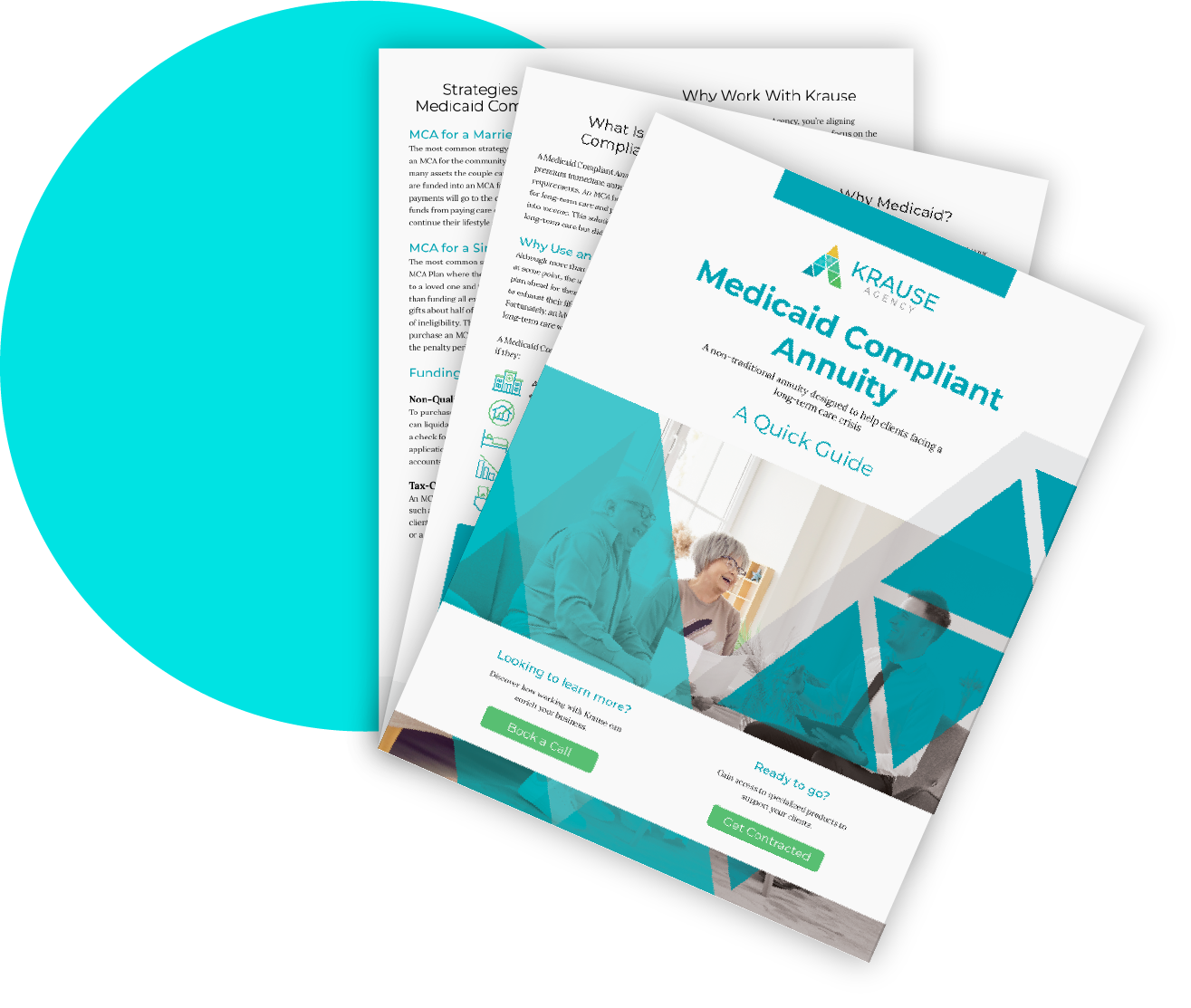Medicaid Compliant Annuity
What will you do when your clients who didn’t plan ahead inevitably end up in a nursing home? Cue the Medicaid Compliant Annuity, a non-traditional annuity intended to help those facing a long-term care crisis.

What is a Medicaid Compliant Annuity?
A Medicaid Compliant Annuity (MCA) is an income-only, single premium immediate annuity designed to work with Medicaid’s requirements. An MCA helps clients obtain financial assistance for long-term care and protects their assets by converting them into income. This solution is ideal for clients who currently need long-term care but did not do any pre-planning.
Why Medicaid?
Wondering why Medicaid
is the answer? Don’t let your misconceptions stop you from the crisis planning opportunity.
Agent Advantage
Our Agent Advantage program allows you to easily charge and collect fees on MCAs that provide little or no commission.
Medicaid Client Referral
Not looking to add Medicaid planning to your business? Send us your client in crisis and get paid for your referral.
Non-Compliant Annuity Valuation
We’ll determine the value of your client’s exiting annuity, assist with the sale, and provide you with a 5% commission.
Our
Carriers
We only work with the best. View our carriers and learn more about getting contracted.
Frequently Asked Questions
Learn more about the MCA product, our process, how to get started, and how we work together.

Discover More About the
Medicaid Compliant Annuity
Download our MCA quick guide to explore the product’s requirements, funding options, popular strategies, and more.
"*" indicates required fields
What Our Agents Get
Let us help with the heavy lifting. When you contract with us, you’ll work with our dedicated team of product specialists committed to supporting your business. Plus, you’ll unlock exclusive access to our knowledge center containing resources like:
- State-specific Medicaid resources
- Comprehensive product guides
- Consumer marketing materials
- On-demand webinar library
- Training tools and videos
